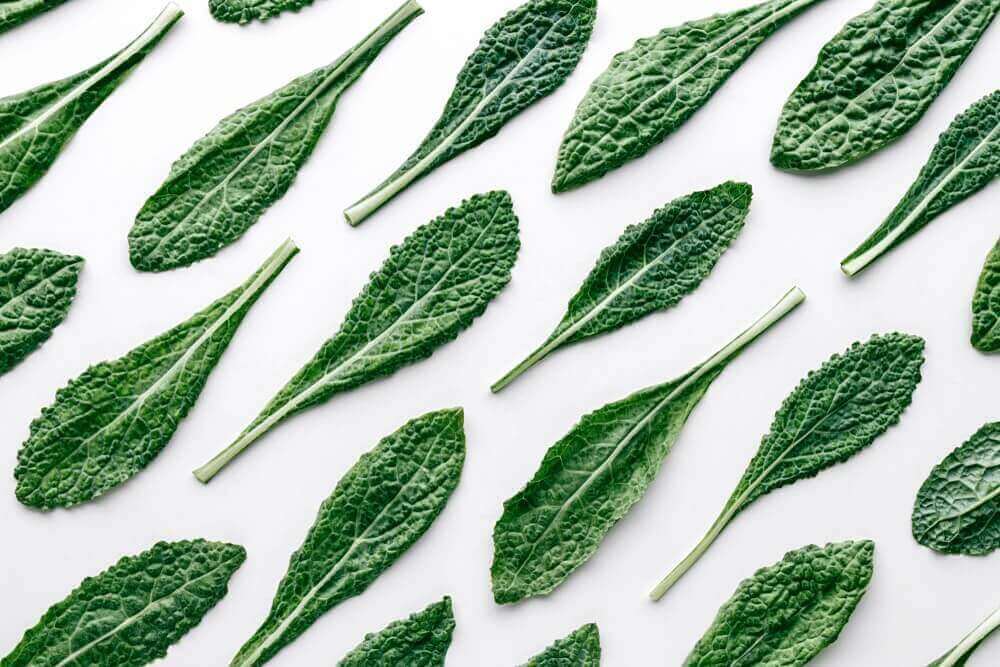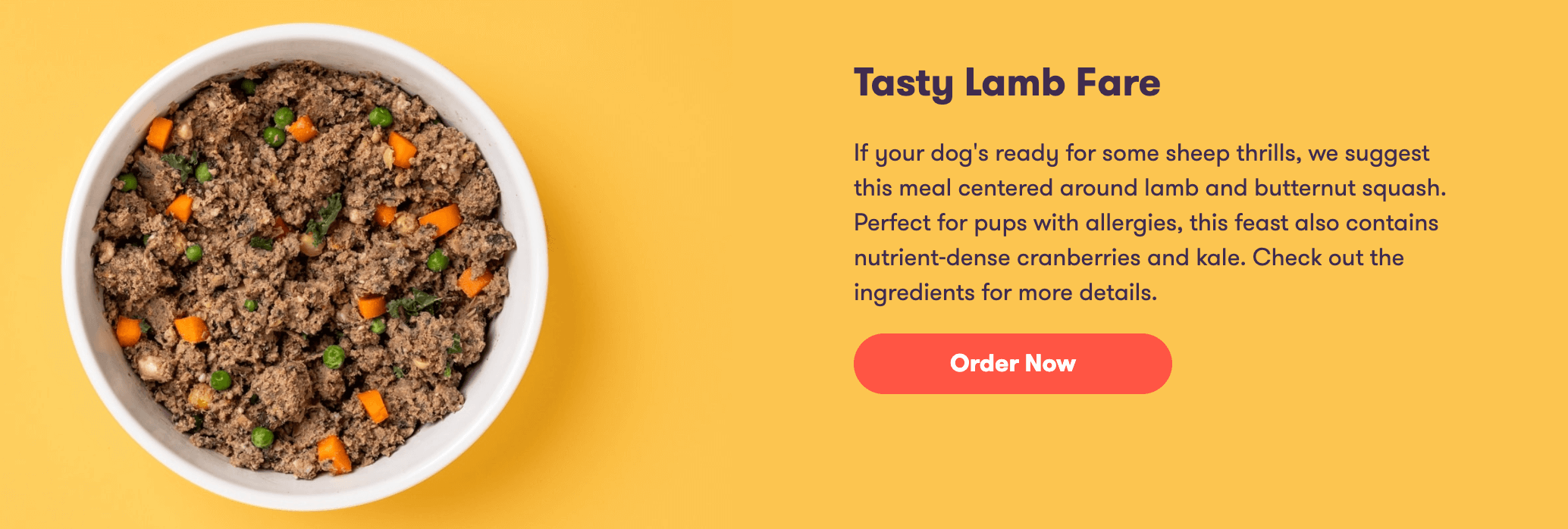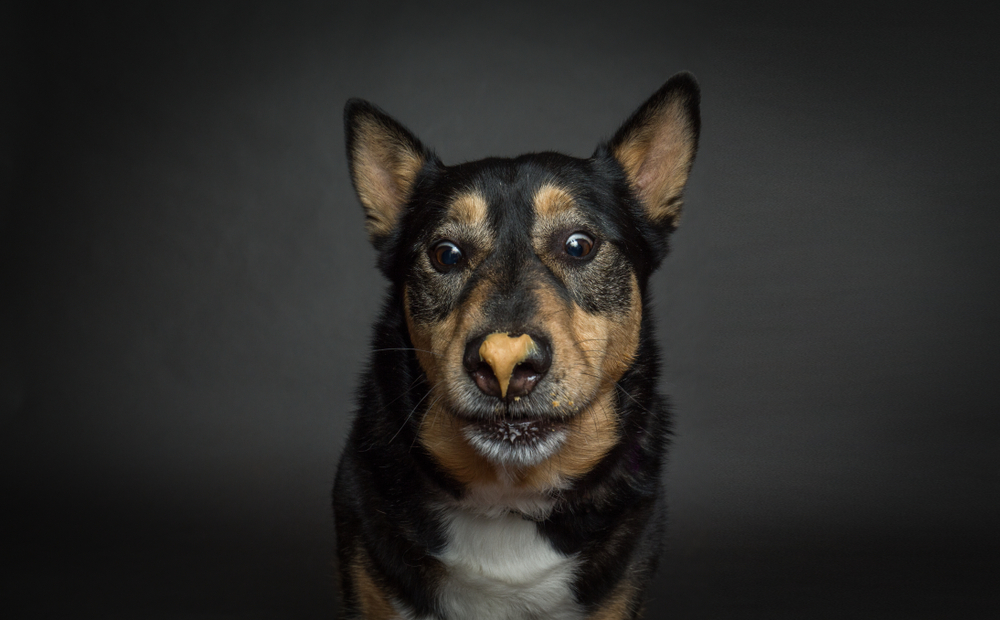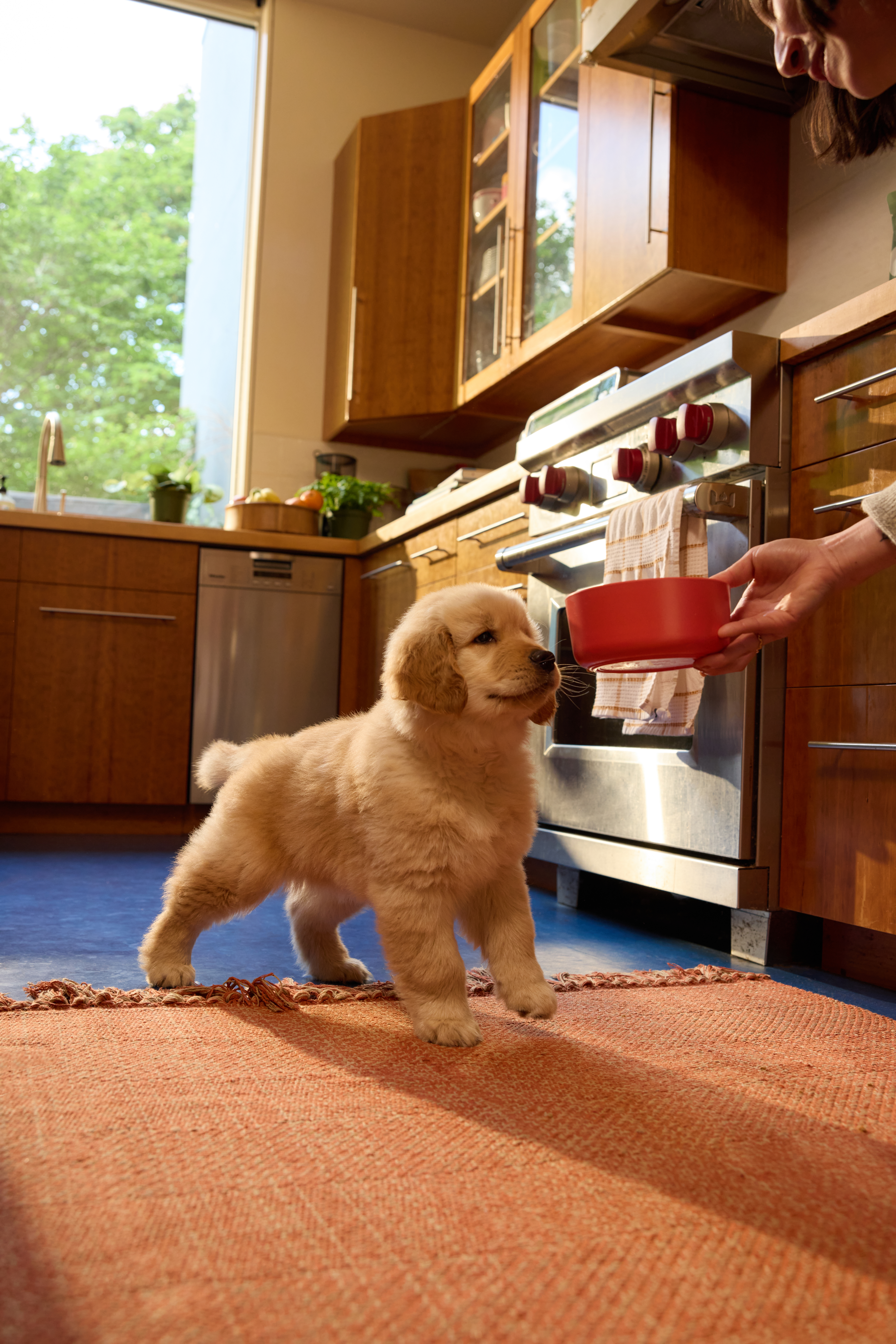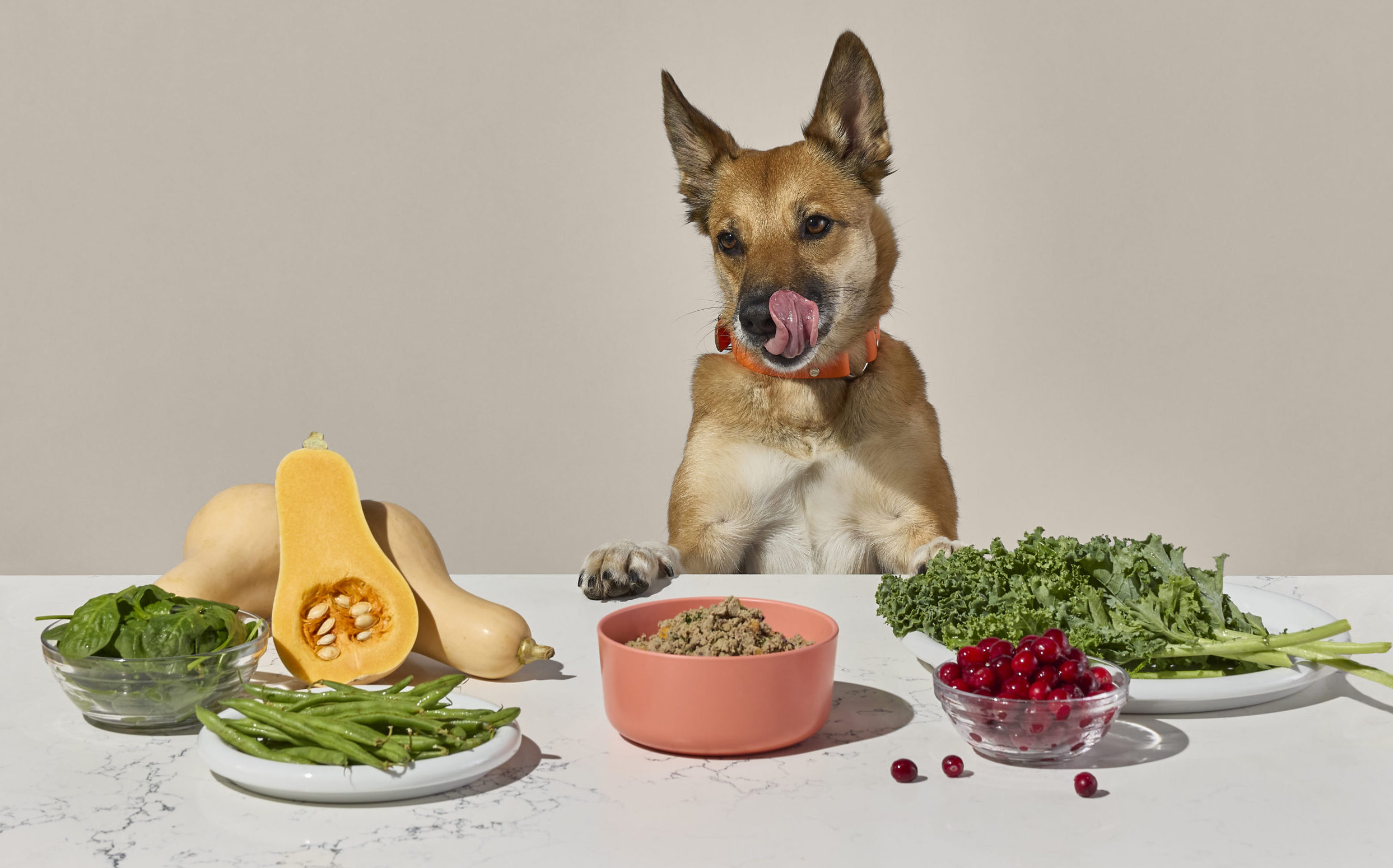Hey Ollie blog readers! We’re offering you an exclusive 60% OFF your starter box! Try now!
Kale is one of the most divisive veggies for humans. Some love it in everything from smoothies to salads and other people pass around memes about how the best way to cook it is with lots of oil so you can scrape it into the trash more easily. Most people either love it or hate it, there is almost no in-between.
What about your dog? Experts weighed in and the answer was not as clear cut as we expected. The truth is, it depends.
Some dog owners feed their pets the leaves raw or cooked while others let their pets chew on the stalks. There are even brands of dog treats that tout kale as a superfood ingredient.
Is this safe and healthy or could it cause pain or other health problems for your pet? We did our research and consulted the experts. There are several benefits to feeding kale to your dog but also a few risks you want to make sure you’re aware of before your dog digs in. As a pet parent, you do your very best every day to keep your dog healthy and safe so you want to be sure you have all of the information before introducing new food to your dog.
Health Benefits of Kale for Dogs
Kale is a cruciferous vegetable like broccoli, cauliflower, and cabbage. It contains antioxidants, which dogs need to stay healthy. Just as in humans antioxidants help dogs counter the effects of free radicals in their bodies which can help prevent cancer. Kale is also high in vitamins A and C.
Like other leafy greens, Kale contains calcium, magnesium, potassium, and iron. These minerals support your best friends heart and bones. Healthy hearts and bones are important for dogs to live long and healthy lives.
Kale is low in calories and high in fiber so it makes a good treat for dogs who need to lose a few pounds. A stalk of kale only contains about 33 calories. This combined with high levels of fiber, vitamins, and minerals could make it a nutritious snack for your pet. Cooked kale could be mixed into higher calorie pet food to help your dog feel full with fewer calories.
If you are looking to introduce kale into your dog’s diet, Ollie’s Lamb recipe is great way to start. Each recipe is vet-formulated with human-grade ingredients that are safely balanced for dogs. Tell us about your pup today, and we’ll recommend the perfect meal plan just for them.
Risks of Feeding Kale to Dogs
According to Dr. Mara Ratnovsky, Kale contains natural compounds, including calcium oxalate and isothiocyanates which can potentially have harmful side effects for dogs. Calcium oxalate is linked to bladder and kidney stones while isothiocyanates can cause gastric irritation. If your pet consumes too much kale for its size it may need to be treated by a vet for complications from kidney or bladder stones. Most pets recover from these conditions but some may require time in the hospital and/or medication.
Along the same lines, too much kale (or other leafy greens) can cause your dog to have some stinky gas. You may wish to chop and steam or lightly cook kale before you offer it to your pet. If your pet is regularly clearing the room after eating kale or other leafy greens you may want to try some other veggies instead such as cucumbers or green beans that may be gentler on their digestive systems.
If your dog is eating Kale regularly, it can also impact his or her thyroid function. This is because they contain substances that can sequester iodine in the dog’s body. It is especially important to monitor or limit kale consumption if your dog is taking thyroid medication.
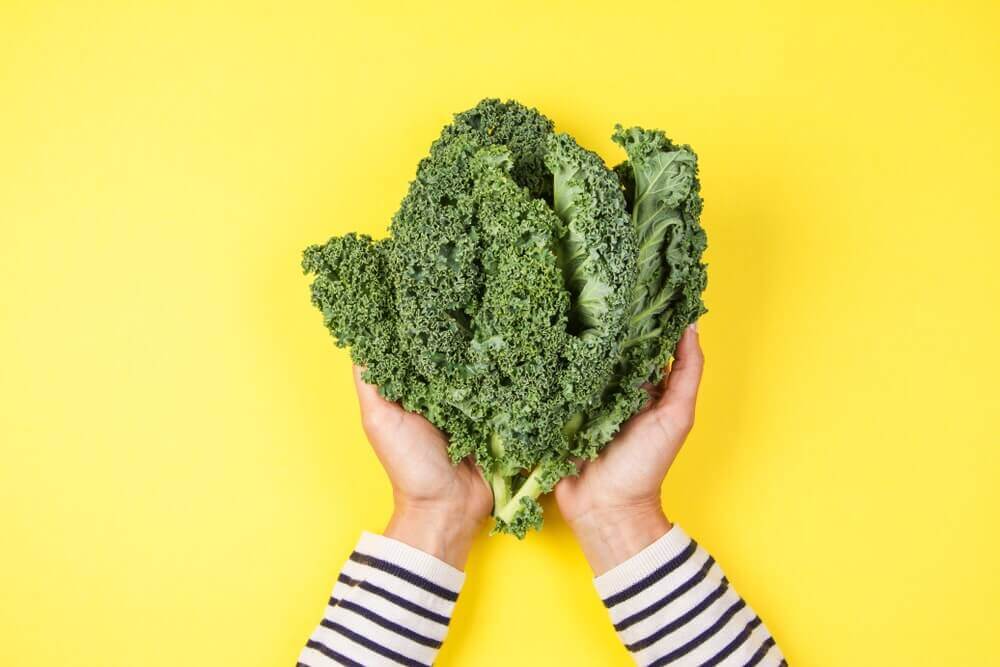
So, should you share your kale with your dog?
If you think your dog may benefit from enjoying kale check with your veterinarian or a veterinary nutritionist you trust first. If you are going to add kale to their food to help with their diet or weight management a nutritional consult could prove extremely beneficial. A nutritionist who can help you understand your dog’s overall nutrition needs can help you come up with the most optimal diet to help your dog live the longest, healthiest life possible.
The amount of kale your pet can safely eat will depend on their breed and size. Dogs with extremely sensitive stomachs will not be able to tolerate much kale if any at all. In dogs with normal digestive system take into account their breed and size before feeding kale. For example, Golden Retriever will be able to eat a bit more kale than a smaller breed like a Yorkshire Terrier or a Beagle.
Don’t panic if your dog accidentally eats a bit of kale. You’ll want to watch them for urinary or gastrointestinal issues but a little bit of kale on occasion should not cause serious issues. They may spit it out or make a funny face if it isn’t a flavor they enjoy, but it won’t harm them.
The Ollie blog is devoted to helping pet parents lead healthier lives with their pups. If you want to learn more about our fresh, human-grade food, check out MyOllie.com
Tagged As:

The nutrition your dog needs,
the food they want.

Enjoying our articles? Subscribe our Newsletters and get new articles directly to your inbox
You might also like
21 July 2025
6 MINS READ
Can Dogs Eat Nuts? Which Nuts Are Safe & Serving Guide
Can dogs have nuts? Some nuts are fine in moderation, but others can cause serious harm. This quick guide breaks down which nuts are safe for dogs, which to skip, and how to feed nut butters respon…
18 July 2025
4 MINS READ
New Puppy Diet Recommendations for Healthy, Happy Growth
As a new pup parent, one of the biggest ways you can support your puppy’s long-term health is by providing the right nutrition. A puppy’s dietary needs are different from an adult dog’s, and…
by Ollie Pets
18 July 2025
5 MINS READ
How Human-Grade Dog Food Benefits Your Pup’s Health and Happiness
You’ve likely heard the term “human-grade” dog food, but what does it really mean, and is it worth it? Choosing human-grade food can be a significant investment for your dog’s long-term he…
by Ollie Pets
